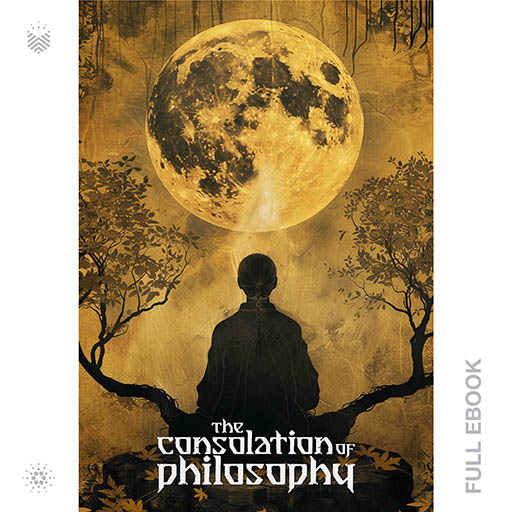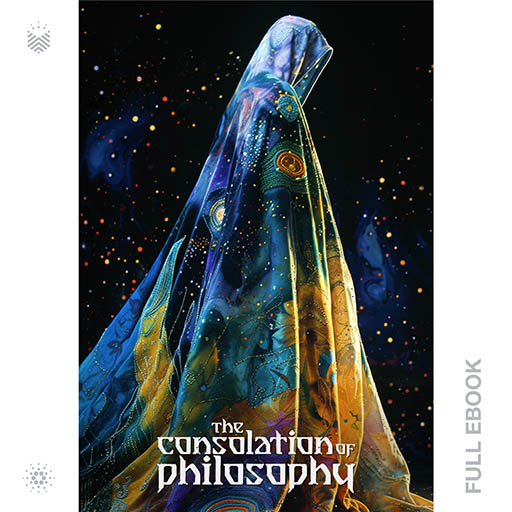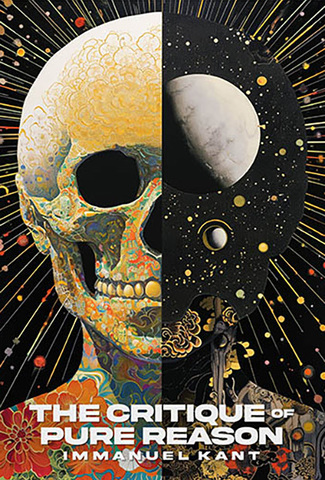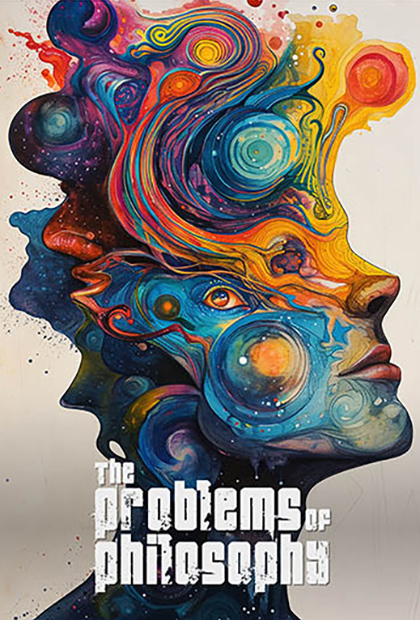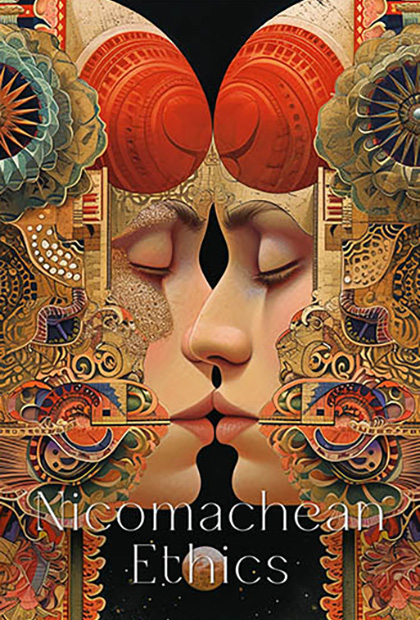Home » Books » The Consolation of Philosophy
The Consolation of Philosophy
*for wallet holding Meditations, The Critique of Pure Reason, and Dialogues
Sold Out - Available On:
jpg.store“The Consolation of Philosophy” is a philosophical work written by the Roman statesman and philosopher Boethius around the year 524 AD while he was in prison awaiting execution. The book is considered one of the most important and influential philosophical works of the Middle Ages.
Description
In “The Consolation of Philosophy,” Boethius engages in a dialogue with Lady Philosophy, who appears to him in his prison cell. The work is structured as a conversation between Boethius and Philosophy, where Boethius laments his unjust fate and questions the nature of good and evil.
Philosophy responds by providing comfort and guidance, discussing various philosophical and theological concepts. The book explores themes such as the relationship between free will and divine foreknowledge, the nature of happiness, the problem of evil, and the transient nature of worldly success and fortune.
One of the central ideas in the work is the concept of the Wheel of Fortune, symbolizing the unpredictable and cyclical nature of worldly success and misfortune. Boethius is encouraged to turn his focus away from the fleeting nature of earthly possessions and find solace in the pursuit of true and eternal goods, such as virtue and wisdom.
“The Consolation of Philosophy” had a profound impact on medieval thought and continued to be influential in the Renaissance and beyond. It combines elements of classical philosophy, particularly influenced by Neoplatonism, with Christian theology. The work has been widely translated and studied throughout history and remains an important text in the history of Western philosophy and literature.
Numbered eBooks: 250
Number of Unique Covers: 16
Number of 1:1 Covers: 10
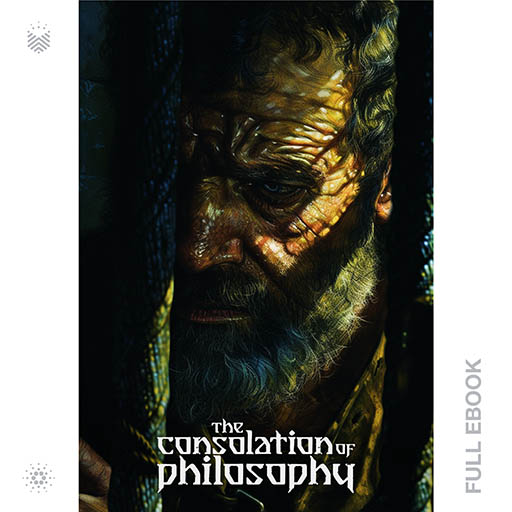
The Incarceration of Boethius
1 Unique Designs
x 70 Numbered eBooks
= 70 NFT eBooks
eBook Numbers 180 - 249
(28.00% of Supply)
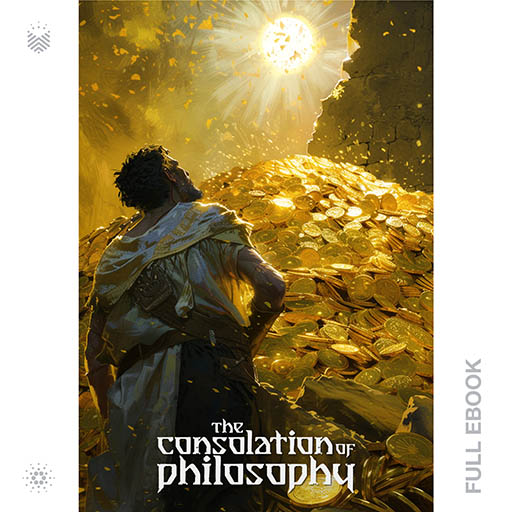
The Mutability of Riches
1 Unique Designs
x 60 Numbered eBooks
= 60 NFT eBooks
eBook Numbers 120 - 179
(24.00% of Supply)
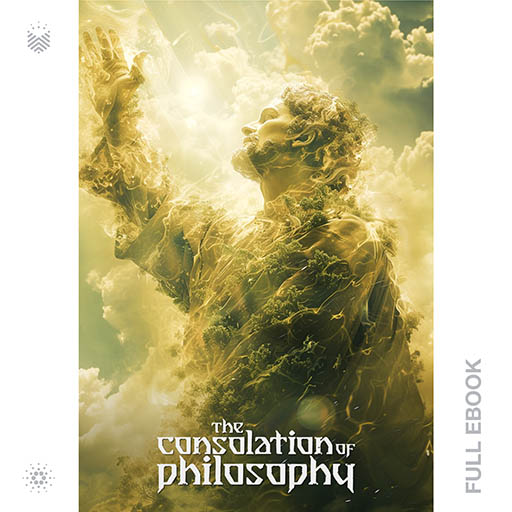
The Nature of God
1 Unique Designs
x 50 Numbered eBooks
= 50 NFT eBooks
eBook Numbers 70 - 119
(20.00% of Supply)
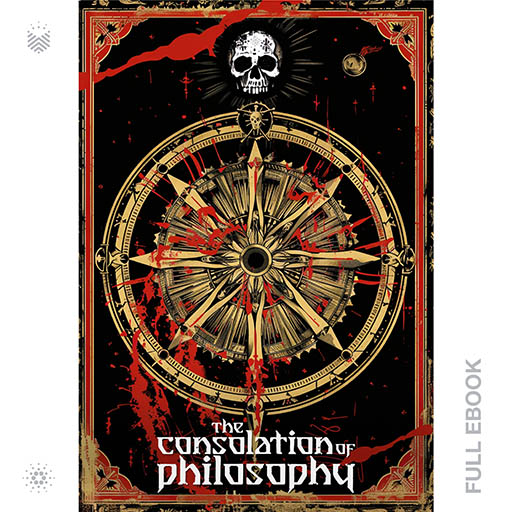
The Transience of Fortune
1 Unique Designs
x 30 Numbered eBooks
= 30 NFT eBooks
eBook Numbers 40 - 69
(12.00% of Supply)
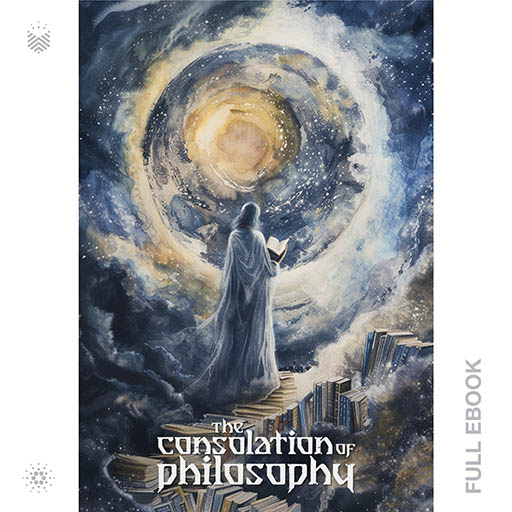
The Nature of True Happiness
1 Unique Designs
x 20 Numbered eBooks
= 20 NFT eBooks
eBook Numbers 20 - 39
(8.00% of Supply)
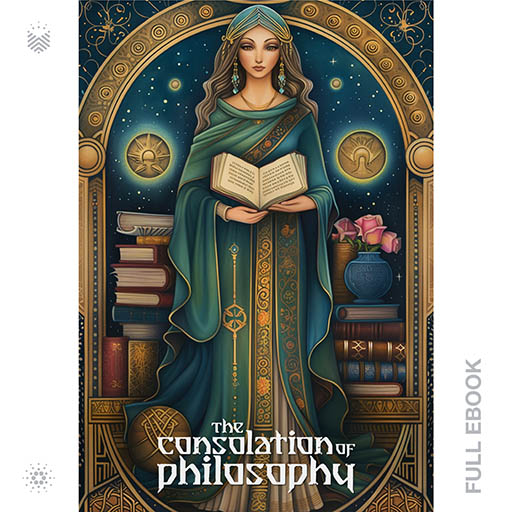
Lady Philosophy
1 Unique Designs
x 10 Numbered eBooks
= 10 NFT eBooks
eBook Numbers 10 - 19
(4.00% of Supply)
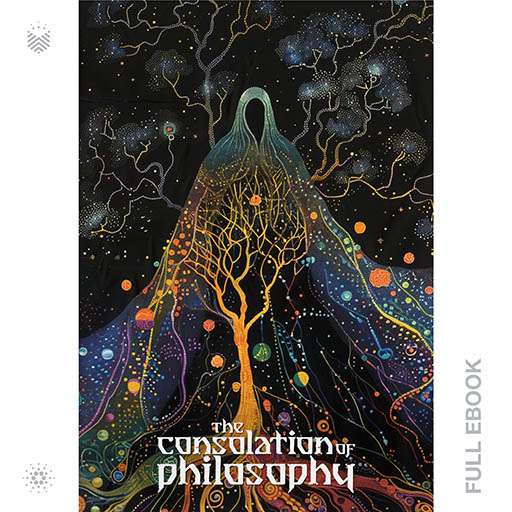
The Robber of Philosophy
4 Unique Designs
x 1 Numbered eBooks
= 4 NFT eBooks
eBook Numbers 6 - 9
(1.60% of Supply)
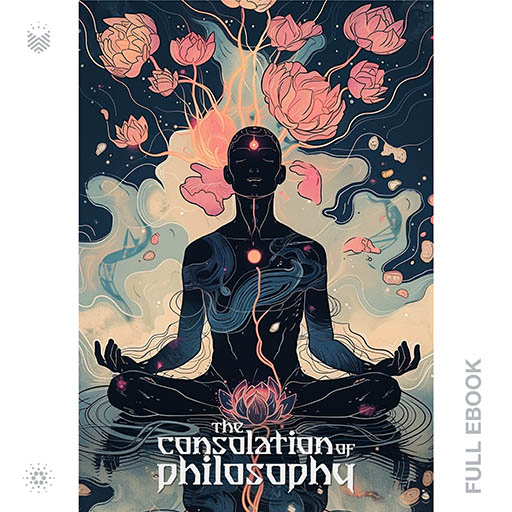
The Lamentation of Boethius
3 Unique Designs
x 1 Numbered eBooks
= 3 NFT eBooks
eBook Numbers 3 - 5
(1.20% of Supply)
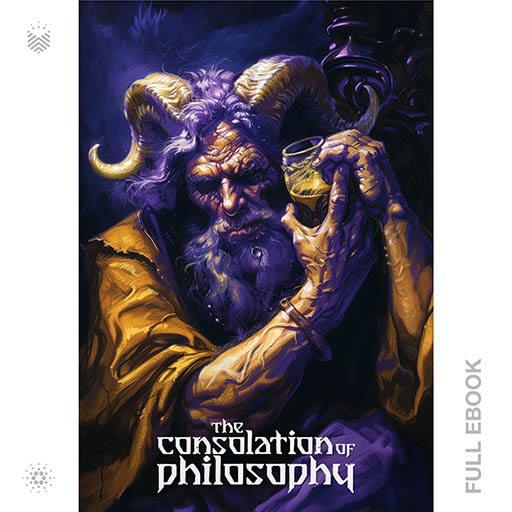
The Disguise of Morality
2 Unique Designs
x 1 Numbered eBooks
= 2 NFT eBooks
eBook Numbers 1 - 2
(0.80% of Supply)
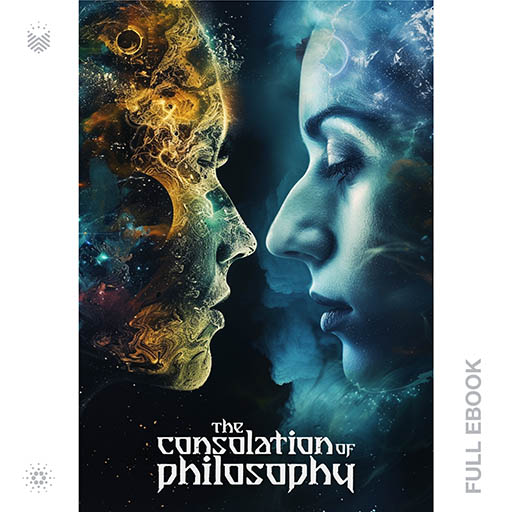
Earthly Wisdom vs Divine Understanding
1 Unique Designs
x 1 Numbered eBooks
= 1 NFT eBooks
eBook Numbers 0 - 0
(0.40% of Supply)
Details
Publisher : Book.io
Series : Monday Meditations 2.0
First Publication Date : 524 AD
Author : Boethius
Genres: Classics, Literature, Non-Fiction, Philosophy, Poetry, Religion
Language : English
Word Count : 43,000
Format : DEA (Decentralized Encrypted Asset)
Read On : Book.io eReader dApp
Cover Art : Includes 4K hi-resolution book cover
Cardano Retail Price : 199 ADA
Cardano Discount Price : 99 ADA, for wallet holding Meditations, The Critique of Pure Reason, and Dialogues
Purchase Limit: 1
Cardano Policy ID : c050801694f73fda42569e92fefebaa30af5e908e979192b7396eef6
Author Info
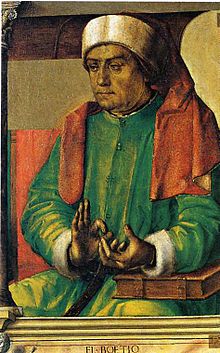
Boethius
Boethius, whose full name was Anicius Manlius Severinus Boethius, (480 - 524 AD), was a Roman statesman, philosopher, and writer. He is best known for his influential work "The Consolation of Philosophy" (Consolatio Philosophiae), written while he was imprisoned awaiting execution in 524 AD, marking the end of his life. Despite his political downfall, his philosophical and theological contributions endured and continued to influence scholars throughout the medieval period… Read More
You might also like
by Immanuel Kant
“The Critique of Pure Reason” is a philosophical work by Immanuel Kant, first published in 1781. It is one of Kant’s major works and is considered a cornerstone in modern Western philosophy. The book addresses fundamental questions about human knowledge, metaphysics, and the nature of reality.
Read More
by Bertrand Russell
“The Problems of Philosophy” is a philosophical work written by the British philosopher Bertrand Russell. It was first published in 1912. In this book, Russell explores various fundamental issues in philosophy, presenting his thoughts on topics such as the nature of reality, the limits of human knowledge, and the philosophy of language.
Read More
by Aristotle
“Nicomachean Ethics” is a philosophical work by the ancient Greek philosopher Aristotle. It is named after Aristotle’s son, Nicomachus, to whom the work is dedicated. This ethical treatise, composed around 350 BCE, is part of Aristotle’s broader exploration of ethics and political philosophy.
Read More

